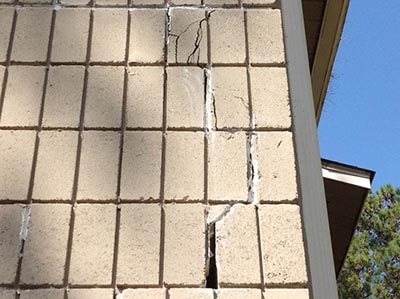Florida Sinkhole Legalities
The high content of limestone and other dissolved rocks in the soil in Florida causes it to erode easily, forming underground voids. When the ceiling of these voids collapse, they form the phenomenon known as a sinkhole, a common problem for many Florida homeowners. When these sinkholes open beneath existing buildings, they can cause major foundation and structural damage, as well as legal issues.
If a sinkhole forms under your home, you may wish to file a sinkhole insurance claim. Since 1981, Florida insurance companies have been required to provide sinkhole coverage, which includes coverage for home repairs, foundation repairs, and sinkhole stabilization. Over the past few years, both private and public insurers have seen a significant rise in sinkhole claims. Some believe this is due to the fact that policyholders are motivated to make the claims since they can keep the cash proceeds instead of using them for repairs. This has led some experts to question whether or not sinkholes are an insurable peril. If sinkholes are deemed an unisurable peril, it could create issues for both private businesses and homeowners alike.
Florida Sinkhole Laws Throughout the Past
Since the formation of the law in 1969, the Florida has made several revisions concerning specific details about the insurability of sinkholes. The committee staff is constantly working and doing research to determine the best way to ensure that the peril of sinkhole damage is sufficiently covered for property owners.
- In 1969, the state of Florida put a reinsurance facility in place to cover sinkhole loss; the facility was later rendered obsolete.
- In 1981, the Legislature put in place the sinkhole insurance law, which required insurance providers to make available coverage for sinkhole losses on structures and personal property. The law also required the insurer to pay for damage due to sinkhole activity.
- In 1992, the Legislature conducted a study of sinkhole insurance coverage over the past 4 years, finding that sinkhole insurance claims had increased significantly (especially around the Tampa Bay area), and the damages due to sinkholes were significantly affecting property value. The decision was made that sinkhole insurance coverage was reasonable if it adhered to certain conditions.
- A follow-up study in 2002 indicated that the severity and frequency of sinkhole issues had both risen since 1996.
- Another study was completed in 2004, finding that they must either establish a reinsurance facility under a state agency that would be responsible for payment of sinkhole claims, or establish a direct writer for the sinkhole peril.
- In the next three years (2005-2007), the Legislature implemented many new recommendations to the sinkhole law as a result of the rising sinkhole crisis. these included: specifications for sinkhole coverage include costs to cover land stabilization, foundation repair, and structural repair; allowance for insurer to deny sinkhole claims if there is no property loss; allowance for policyholder to demand testing; allowance for insurer to limit payment to cash value of damage, not including costs for underpinning or grouting; and more changes.
- In 2007, changes made by the Legislature allowed for separate coverage for catastrophic ground collapse, covering only loss due directly to a ground collapse event.
- In 2009, legislation allowed insurers that offered sinkhole coverage to non renew those policies in two counties and to provide policyholders with an offer of coverage including catastrophic ground cover collapse and excluding sinkhole coverage in those same counties.
Current Sinkhole Insurance Laws in Florida
In the state of Florida laws, a sinkhole is defined as a land form caused by the subsidence of soil, sediment or rock as underlying layers are dissolved by groundwater. This dissolution of limestone or other such rock may be form underground voids, resulting in depressions or collapses in the surface of the land. In most states, property insurance excludes coverage for “earth movement”, but in Florida, every insurance provider must make available coverage for catastrophic ground cover collapse, referring to extreme damage that renders property destroyed and/or uninhabitable. Sinkhole loss means structural damage or foundation damage that results from sinkhole activity; coverage applies if the structural damage is the direct result of any “sinkhole activity”, defined as the settlement or weakening of the ground supporting the foundation due to movement or raveling of soil, sediment, or materials into underground voids as a result of water on a limestone or similar rock formation.

Insurers are required to provide coverage for catastrophic ground cover collapse and to make available coverage for sinkhole loss on any structure, including personal property contents. Most private insurance companies have already implemented, or are in the process of implementing property inspection programs in which the property in question must meet specific requirements before it can qualify for sinkhole coverage. This will make sinkhole coverage less available to may homeowners.
It is important for homeowners in Florida to know the basics of the legalities of sinkholes. This will prepare them to deal with sinkhole insurance claims, should it ever become necessary. It is also important for homeowners to be able to rely on a professional foundation repair company to take care of all of their sinkhole repair needs. If you are looking for sinkhole remediation in Florida, contact the team here at Foundation Professionals of Florida today.
